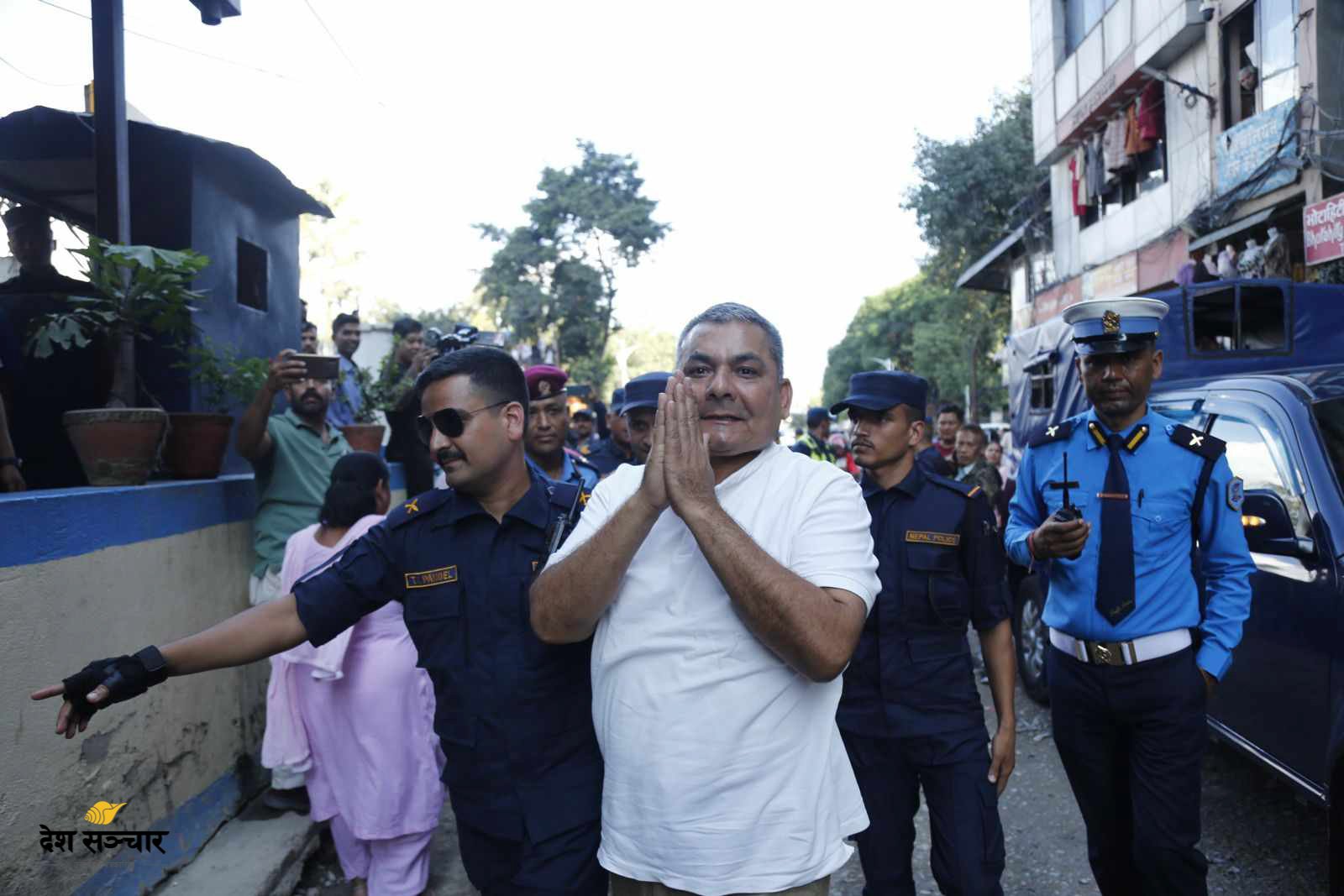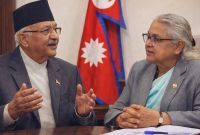Arrested in India: Monarchist Leader Durga Prasain Nabbed in Assam – Allegations of Indian Support Now Proven Baseless

Kathmandu – Durga Prasain, a prominent businessman and the commander of Nepal’s pro-monarchy movement, has been arrested in the Indian state of Assam. He was a key figure behind the violent protests that occurred in Kathmandu’s Tinkune area on the 15th of Chaitra (March 28), and had been under police investigation since then. According to police sources, he is currently being extradited to Nepal via Kakarbhitta.
Prasain had gone underground after allegedly using a vehicle to attack police personnel during the protest. For a while, he remained out of contact, although he continued to post videos on social media claiming he had not absconded. Despite those claims, a manhunt was ongoing.
India’s Role Dispels Political Myths
The fact that Durga Prasain was apprehended inside Indian territory holds significant political weight. His arrest, carried out by Indian authorities at the request of the Nepal government, is a strong indication of close coordination between the two nations. More importantly, it dismantles the longstanding allegation that India was secretly supporting the monarchist movement in Nepal.
According to a high-level security source, “The Indian government fully cooperated with Nepal in the arrest of Durga Prasain, reflecting a transparent and collaborative security relationship between the two countries.”
A Turning Point for the Monarchist Movement
Following the violent demonstration on March 28, Prasain disappeared from public view. That day, Kathmandu’s Tinkune area witnessed an aggressive anti-government protest, with direct attacks against security personnel. Authorities have considered Prasain to be the chief orchestrator of the violence.
His arrest is seen as a major blow to the leadership of the monarchist movement in Nepal. With the main figurehead in custody, the ongoing protests demanding the reinstatement of the monarchy are now under deeper scrutiny.
Conclusion
Durga Prasain’s arrest in India clearly highlights the strength of diplomatic coordination and mutual trust between Nepal and India, especially in matters of regional stability. The incident has now decisively refuted the claim that India was backing the pro-monarchy protests in Nepal.
As one analyst put it, “This arrest puts an end to all the accusations and suspicions surrounding India-Nepal relations. There is no longer any credibility to the political propaganda that India was secretly fueling Nepal’s monarchist agenda.”




![From Kathmandu to the World: How Excel Students Are Winning Big [Admission Open]](https://nepalaaja.com/img/70194/medium/excel-college-info-eng-nep-2342.jpg)
